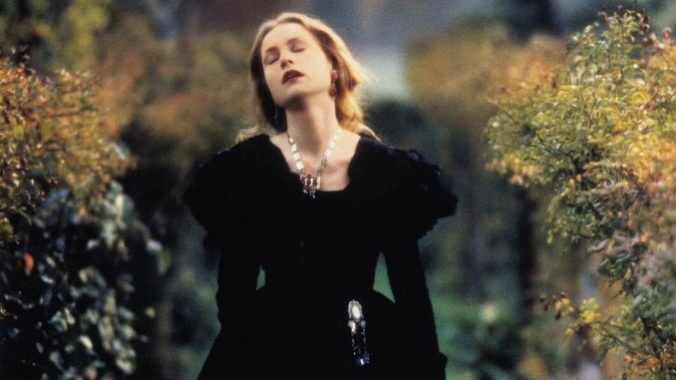A Poisoned Well Well-Poisoned: The Collaborations of Claude Chabrol and Isabelle Huppert

When director Claude Chabrol and Isabelle Huppert are together, you can bet there will be poison. Classically known as one of the more “feminine” modes of murder, the lethal substance’s presence is somewhat predictable in female-centered thrillers. If Isabelle herself is not slipping it into something, she herself is being poisoned. Yet because Chabrol always includes social context, the poison becomes metaphorical and murky, the motives and operatives unclear or doubled.
Poison is a good lens through which to drink in the consistently dry films of Chabrol. For a long time, it seems like nothing is there. He sets his camera back, objective and still, like an anthropologist. Hardly any action appears on screen as details shuffle through the background in passing dialogue and gossip. Suddenly, something clutches. But it’s too late, and we wind our way towards an unstoppable end. The sooner we can detect signs of poisoning, the more enjoyable the thrill.
In this way, and in honor of a new Criterion edition of La Cérémonie, we look at the collaborations between Claude Chabrol and Isabelle Huppert:
-

-

-

-

-

-

-

-

-

-

-

-

-

-

-

-

-

-

-

-

-

-

-

-

-

-

-

-

-

-

-

-

-

-

-

-

-

-

-

-








































